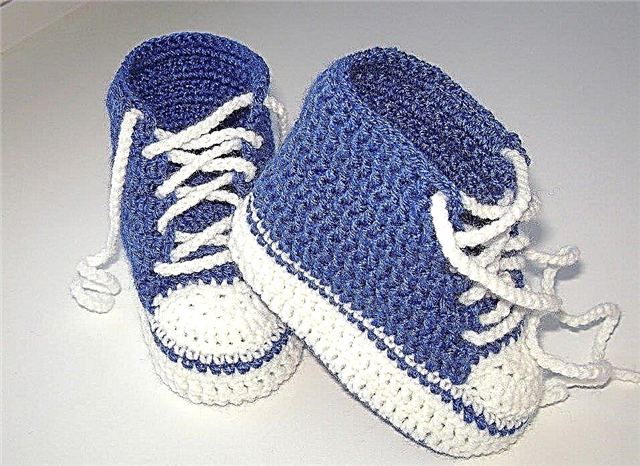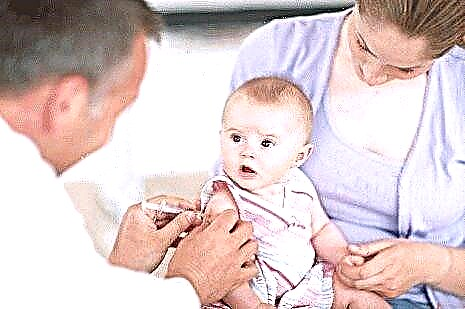Any parent worries about the health of their newborn baby, trying to give him adequate nutrition and adjust the drinking regime. It is not so important whether the baby is breastfed or artificially fed, how dangerous are the consequences of dehydration with a lack of moisture in the body. When a child does not drink water, what to do at the same time, why a baby can refuse liquid not only six months after the introduction of complementary foods, but also two or three, how to teach a baby to drink - this article will tell about all this.

Kid drinks water
Water consumption rate for children under one year old
Not only non-carbonated clean water enters the baby's body in the form of liquid. Fruits, vegetables, juices, soups, even meat, fish and cereals - all this contains liquid in its composition.
Important! Doctor Komarovsky, a Russian pediatrician, believes that if the child does not want to, does not drink water, then it is quite possible that in the absence of visible disturbances and the activity of the baby, the liquid that comes with food, compotes or juices is enough for him.
The norm in the water for children of different ages is as follows:
- From birth to 3 months - 10-30 ml of water per day;
Note! There is a recommendation to start offering water after 1 month. Water is contraindicated for a newborn baby in the first weeks.
- From 3 to 6 months - 30-50 ml;
- From six months to a year - 70-100 ml.
You can turn to the formula, where the liquid rate for children up to a year per day is 50 ml of water per kilogram of weight.
In some cases, the rate increases:
- if the crumb often spits up;
- with vomiting and diarrhea;
- with intestinal infection;
- with fever;
- in summer, especially in extreme heat.
In these cases, the drinking regimen is adjusted with the attending pediatrician.
Why does the child drink little liquid
The need for water is influenced by various factors, ranging from the way of feeding (it is obligatory to water the willows, in contrast to the guards), ending at times of the year outside the window (in the heat, which of course, thirst increases).
First of all, you should carefully monitor your child and offer water when he wants. You cannot force a child, you can immediately understand that he wants to drink.
Additional Information. In cases such as dehydration, dry skin, mucous membranes, constipation, liquid should be present in the diet, regardless of the baby's wishes. As a rule, in especially difficult situations, they resort to droppers.
Physiological causes
A child may refuse to drink in the following situations:
- Bad taste in water, which is unpleasant for a baby. It may have "stagnated" or "absorbed" a lot of foreign aromas. The plastic from the bottle can change the taste.
- The water is too cold or, conversely, very hot. Usually the baby is more willing to drink cool, room temperature liquid.

The child will not drink cold water
- Breastfeeding has recently ended, so the liquid for the baby is tasteless, unlike milk, incomprehensible and non-nutritious.
- Breast milk is sufficient, not too fatty and contains the right amount of water.
- Soups, compotes and liquid cereals are constantly present in the diet.
Psychological reasons
From the point of view of psychology, the baby begins to refuse water in the following cases:
- When he is forced or forced to drink liquids.
- When the baby is already accustomed to sweet water in the form of juices, compotes, it is psychologically more comfortable for him to drink just such drinks.

Water accustoming should not have a negative experience
Additional Information. What can be done so that the child still starts drinking water - to dilute the drinks with liquid until the baby completely switches to pure water.
Pathological causes
There are some diseases in which the baby may refuse to drink, and not only liquid, but also milk, mixture. If you do not take action, then the ailment will begin to worsen, turning into a chronic form or adversely affecting the baby's body.
Diseases:
- Disturbances in the work of the central nervous system (central nervous system). In this case, the brain does not receive a signal that you want to drink.
- Pathologies in the oral cavity, such as stomatitis, candidiasis, thrush, teething. The baby may also refuse to eat.

Stomatitis and teething in a child
- The beginning of an infectious disease. Typically, the temperature also rises.
Important! With a fever, it is imperative to offer the baby water, otherwise dehydration, spasms, convulsions, and even death may begin.
- Kidney stones and urinary tract stones.
- Allergy, which is aggravated in the absence of moisture in the body.
- Disorders in the digestive tract (gastrointestinal tract). In the presence of foreign objects in the esophagus, its narrowing due to congenital or acquired causes, the baby will begin to refuse to drink and eat.
- Violation of metabolic processes (metabolism).
The kid can refuse liquid also for reasons:
- He just doesn't want to drink;
- The infant's stomach is very full;
- He was not accustomed to it. You should begin to accustom yourself in the same way as in the case of complementary foods: from a teaspoon, give as needed between meals.
- The water supply method does not match the age of the baby. If the baby is immediately offered to drink from a glass, he may not understand what is required of him.
- Water is out of the access zone during the day - a habit of not drinking it is formed.
- There is no positive example of parents.
- The baby was not very active during the day.
- The individuality of the child, features of his character.
- Cool season, when the baby often eats warm soups or mother's milk.
Council. The older the child gets, the more difficult it is to get him to drink, so you should get used to this healthy habit from the early months.
What to do
In order for the baby to start drinking water, you can resort to tricks:
- It is important not to force, but to offer more often. In exceptional cases, it is allowed to enter water using a syringe or pipette.
- An infant can be offered to drink not from a bottle with a nipple, but from a spoon, straight from a glass.
Note! If the crumb is on gv, then it is worth tracking the portion of the liquid so that later the baby does not give up nutritious milk.
- Think over the attributes - perhaps the baby will like a bright spoon or a personal mug. It is worth pouring only water into it so that the child gets used to it. At first he will take a few sips, but during the day he will drink his rate.
- Give up sugary drinks gradually. Pediatricians are advised not to acquaint children with soda, drinks with dyes at all until three years old, since they are of poor quality, and the crumbs' immunity is formed in the first years. As for natural juices and compotes, you should also be careful with them - getting used to the sweetness, the baby does not want to drink tasteless water afterwards. Also, fruit sugar is the cause of tooth decay.
- For a walk, take some water with you, not juices, since the latter only increase thirst and increase appetite.
Bottle-fed baby
If the baby receives mixed or artificial nutrition, he definitely needs to be supplemented with water. From the first days of taking milk mixtures, it is necessary to give him about 50-150 ml of liquid per day.

Bottle feeding
Breastfed baby
The opinions of experts are divided:
- Breastfeeding consultants insist that for six months the baby does not need water, otherwise difficulties arise with the guards. Dr. Komarovsky notes that it is still necessary to offer liquid, but if the baby does not want to drink it, then there is no need to insist. It is especially important to give water at a high temperature.
- Pediatricians are recommended to give water to the crumbs, starting from the second month, even if the baby is on gv.
Additional Information. WHO recommends that children should not be fed on gw with anything, their main food is breast milk, which is 85-90% water, so for the baby it is both food and liquid at the same time.
When to see a doctor
A particularly dangerous consequence of the lack of water in the diet is dehydration. However, other diseases can also occur.
If you find the following signs, you should go to the doctor:
- The kid began to lose weight, the number of pee-pecks is less than 10-12 per day.
- Stool has changed (it can be both constipation and diarrhea). The stool contains blotches of mucus, blood, or pus.
- The mucous membranes (eyes, oral cavity) dry out.
- The skin has lost its elasticity, acquired a bluish tint.
- Constant apathy of the baby, headaches.
- Convulsions.
- Rapid heartbeat of the baby, loss of consciousness.

Signs of dehydration
With a mild stage of dehydration, when the mucous membranes have not yet begun to dry out, treatment can be carried out at home.
According to pediatricians and infant nutritionists, forcing a child to drink water is not worth it, but it should be offered. So parents will help the baby to avoid dehydration, constipation and other problems in the digestive system. Water is very important for a child's body, each baby needs its own amount of fluid.



